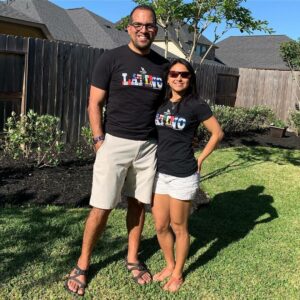The first time I heard the phrase was from my parents. The second time, it was a teacher. Later, crossing guards and others burned it into my memory. The instruction was simple: look both ways before crossing the street. Lastly, I learned the song!
“Look both ways when you cross the street, Left and right, what do you see?
If no cars are coming, you’re safe as can be. Look both ways, look both ways.”
Geof Johnson
The safety message was to ‘take a moment before you move forward.’ Recently I have considered how valuable it would be to apply these simple principles we learned as children into our adult lives today.
- Awareness of your surroundings
- Pondering the destination you just left as well as where you are headed
- Noticing the unexpected in the ordinary
“Looking both ways” is a life lesson that translates.
It affirms awareness more than caution. Embedded in the statement is the intent to move forward. A child who is encouraged to look both ways does not intend to stay on the curb, but more so intends to head toward a new destination. As believers, we are people who see, reflect, take note, and change.
MOMENTS happen daily and may be forgotten, but MOVEMENTS need to be noticed, acknowledged, and fostered.
-TaNK
The DAILY EXAMEN is an ancient spiritual practice adopted by the early church and exists in many forms today. Simply it is a prayerful reflection over the events of each day. If there is an element that is distinctive of the ‘Examen’ it may be the PACE. In a world of sound bytes, video clips, and cultural attention deficit, the Examen is a stroll that moves through the last 24 hours and then slowly crosses into the next day. No moment is too small and if our theology is correct, God is in all of them. In summary, you are looking for God’s presence in your past and His direction as you go forward.
As believers, our relationship with Jesus is to be current, dynamic, and noticeable. Our interaction with him should be similar to how we talk with a friend, familiar, safe, and vulnerable. For me, to have a consistent practice that allows me to see God’s hand in my whole life has been invaluable and pivotal to my faith.
Many have developed techniques for a Daily Examen. Saint Ignatius Loyola championed its practice early on and encouraged the Jesuits to practice it 2x a day (noon and the end of the day). He viewed it as a gift from God directly and wanted it shared widely. Below are the simple steps of the Daily Examen and a way that you can look both ways, your past and your future, in a posture of gratitude and sensitivity to Christ.
- SETTLE – Become aware of God’s presence. Slow your breathing. Try putting your feet on the floor (get settled). Set aside distractions and be expectant to receive from the Lord. The day could feel chaotic or busy, but ask God to bring clarity as you reflect.
- LOOK BACK – Review the day in gratitude. Note the joys, delights, and gifts of the day. Slowly, purposefully, and intentionally, notice the significant and seemingly minor moments of your day (food, sights, people, work, etc). As you reflect on the previous 24 hours, pick one event that stands out to you.
- NOTICE – Pay attention to your emotions. Ignatius thought God was easily found in our emotions. What were they? What is God saying through them to you? Not shame, but awareness. Is there a prompt in the midst? Someone to reach out to or contact? Anyone you need to apologize to? Anything bother you? What can you do to take care of it? Has this distracted you from anything? (try to sit and listen)
- FOCUS – Choose one feature of the day and pray from it. A vivid moment that could be good or bad. Look at it from all angles. Allow prayer to spring up to it. Praise, petition, lament, intercession, and gratitude.
- TOMORROW – Now go forward! What are your feelings about tomorrow? Any changes, convictions, hopes?
As you look both ways and foster a sensitivity to notice God’s hand in your past and your future, you will understand in a deeper way that “Jesus Christ is the same yesterday and today and forever” – Hebrews 13:8
A CHALLENGE: If you want to join me in practicing the Examen every day for a month, together, send me a short email so we can encourage one another! – Tank (KenBTank@gmail.com)




